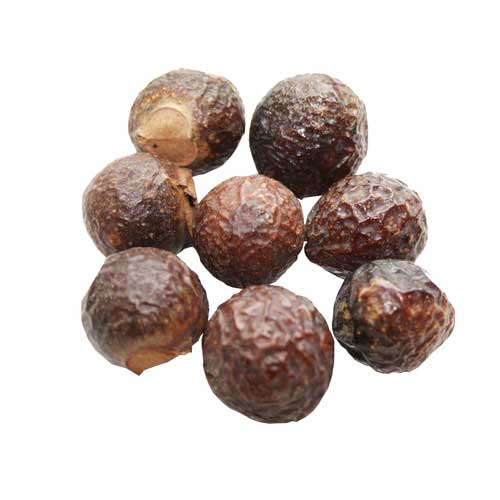
In recent years, the trend toward eco-friendly and natural cleaning products has surged. Among the alternatives, organic soap nuts stand out as a versatile, sustainable, and gentle choice for laundry and household cleaning. But how do they stack up against traditional chemical-based detergents? In this comparison, we’ll explore what sets organic soap nuts apart, their benefits and drawbacks, and help you decide which option may be better for your lifestyle and cleaning needs.
What Are Organic Soap Nuts?
Soap nuts, also known as soapberries, are the fruit of the Sapindus tree, commonly found in regions like India and Nepal. These berries contain a natural soap-like compound called saponin, which is released when they come into contact with water. For centuries, soap nuts have been used as a natural cleanser, and today, they are often marketed as an eco-friendly laundry detergent alternative.
What Are Traditional Detergents?
Traditional detergents are chemical formulations designed to remove dirt, stains, and odors from clothing. They often contain synthetic surfactants, fragrances, dyes, and preservatives that are engineered for powerful cleaning results. Although they’re effective, some of the chemicals used in detergents are controversial for their impact on health and the environment.
Ingredient Comparison: Natural vs. Synthetic
Organic Soap Nuts:
Natural Saponin: The active ingredient in soap nuts is saponin, a natural surfactant. It’s biodegradable, non-toxic, and safe for the environment.
No Additives: Soap nuts contain no synthetic fragrances, dyes, or preservatives, making them a great choice for those with sensitive skin or allergies.
100% Plant-Based: Since soap nuts are a natural plant product, they’re vegan and cruelty-free, making them an excellent choice for conscious consumers.
Traditional Detergents:
Synthetic Surfactants: The main cleaning agents in traditional detergents are synthetic, petroleum-based surfactants, which can have environmental and health risks.
Chemical Additives: Most traditional detergents contain dyes, fragrances, and preservatives to enhance cleaning power and scent, which can irritate skin and contribute to allergies.
Environmental Impact: Many detergents contain phosphates and other compounds that pollute water bodies, affecting aquatic ecosystems and contributing to algal blooms.
Cleaning Power: Which Cleans Better?
Soap Nuts: Soap nuts are effective at cleaning lightly soiled clothes, and they are particularly well-suited for daily laundry needs. However, they may not be as powerful against stubborn stains, like grease or ink. Many soap nut users find that adding a bit of baking soda or a pre-treatment solution enhances the cleaning power of soap nuts for tougher stains.
Traditional Detergents: Traditional detergents are designed to tackle heavy soiling and stains, offering a powerful clean due to their synthetic chemicals and additives. They typically perform well on tough stains without the need for additional products, making them a reliable choice for those who frequently deal with heavily soiled items.
Skin Sensitivity and Safety
Soap Nuts: Soap nuts are hypoallergenic and free from irritants, making them a safe option for those with sensitive skin, allergies, or conditions like eczema. Since they lack synthetic fragrances and dyes, they are gentle on skin and can be safely used for babies’ clothing and other sensitive fabrics.
Traditional Detergents: Many traditional detergents contain chemicals, fragrances, and dyes that can irritate sensitive skin. Even “sensitive” or “gentle” formulations may include mild allergens, which can be problematic for some people. Residues left on clothes after washing may trigger skin reactions for those with allergies or sensitivities.
Environmental Impact: Which Is More Eco-Friendly?
Soap Nuts: One of the greatest benefits of soap nuts is their low environmental impact. Being 100% biodegradable, they leave no chemical residue in water systems, and they can be composted after use. Additionally, soap nuts require minimal processing, which reduces the carbon footprint associated with their production.
Traditional Detergents: Traditional detergents often contain phosphates, petrochemicals, and non-biodegradable compounds. These can harm aquatic life, contribute to water pollution, and accumulate in the ecosystem. Many detergents also come in plastic packaging, adding to the growing plastic waste problem.
Cost-Effectiveness: Which Option Saves Money?
Soap Nuts: Soap nuts may have a higher upfront cost, but they are very economical in the long run. A small bag of soap nuts can last for dozens of laundry loads, especially when reused. For instance, 4-6 soap nuts can typically be used for about five laundry cycles, making them highly cost-effective over time.
Traditional Detergents: The cost of traditional detergents can add up, particularly for high-efficiency or eco-friendly brands. While cheaper detergent options are available, frequent purchases and one-time use per load can lead to higher overall spending compared to reusable soap nuts.
Usage and Convenience
Soap Nuts: Using soap nuts may require a slight adjustment in routine. They typically need to be placed in a small muslin bag and added to the wash. Some users also make a liquid solution by boiling soap nuts with water, which can be stored and used as needed. Although easy to use, soap nuts require a bit more effort compared to the straightforward process of pouring detergent.
Traditional Detergents: Traditional detergents offer convenience and ease of use. Available in liquid, powder, and pod form, they’re simple to measure and add to a washing machine. For busy households, this convenience may be a deciding factor in sticking with traditional detergent options.
Long-Term Effects on Fabrics
Soap Nuts: Soap nuts are gentle on fabrics, making them ideal for delicate materials and extending the life of clothing. Their mild nature reduces wear and tear, ensuring colors and textures are preserved over time.
Traditional Detergents: Traditional detergents can be harsher on fabrics, especially those containing strong chemicals. Repeated washing can lead to fading colors, thinning fabric, and increased wear on clothes. While effective at cleaning, some detergents may be too strong for delicate items.
Practical Tips for Making the Switch to Soap Nuts
If you’re considering trying soap nuts, here are a few tips for a smooth transition:
Start Small: Use soap nuts on lightly soiled loads or everyday clothes to get a feel for their cleaning power.
Combine with Boosters: For tougher stains, try adding natural stain removers or a small amount of baking soda or vinegar.
Experiment with Liquid Soap Nut Solution: Boil soap nuts with water to create a concentrated liquid that can be stored and used for multiple purposes, including as a cleaner for surfaces.
Final Verdict: Which Is Better for You?
The choice between organic soap nuts and traditional detergents depends on your specific needs and values. Here’s a summary to help you decide:
Choose Soap Nuts If: You prioritize eco-friendliness, have sensitive skin, and are looking for a gentle, all-natural cleaner for daily laundry. Soap nuts are also ideal for those who prefer sustainable, biodegradable products with minimal environmental impact.
Choose Traditional Detergents If: You need a high-powered solution for heavy stains, value convenience, and have no sensitivities to detergent chemicals. Traditional detergents may be the best choice for households with frequent heavy-duty laundry needs.
Conclusion
Soap nuts and traditional detergents each offer unique benefits, and your choice ultimately depends on your lifestyle, budget, and environmental concerns. For a green, gentle alternative that’s kind to both skin and the planet, organic soap nuts make an excellent choice. If you need powerful cleaning for heavily soiled items, traditional detergents may be more practical. Whichever option you choose, both can be used mindfully to support a cleaner, healthier home.






